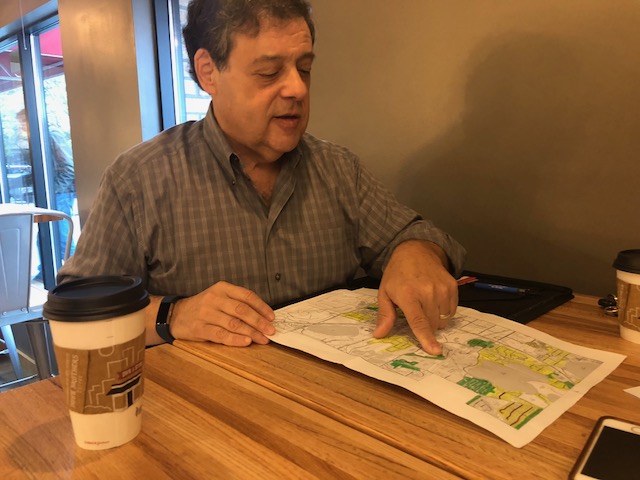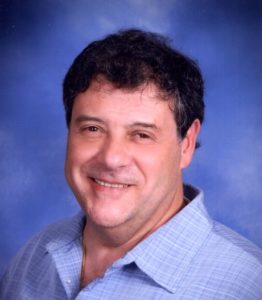
Cancer causes candidate Greg Rubenstein to run for city council against two incumbents.
By Maddie Christy and Sam Johnson
Greg Rubenstein was set to retire at age 60. His stage 3 esophageal cancer diagnosis got in the way. His unexpected health problems forced him to consider what his next years would look like. Rubenstein, 61, and his wife, Marlys, thought they were content with transitioning into their next stage of life—retirement.
“[My cancer] put me out of commission for awhile. During that time, I put a lot of things in perspective,” Rubenstein said.
While recovering from cancer surgery he realized sitting around the house wasn’t for him.
Now, in fall 2018, Rubenstein, who works as a Product Development Analyst, is running for Arden Hills city council.
“I like to help,” Rubenstein said.
That’s why he got into politics. He isn’t sure the moment it piqued his interest. It just kind of happened.
The 2016 election season jumpstarted a series of appointments and disappointments that led him to his current campaign.
Officials at the 2016 caucus were looking for someone to send as a delegate to the national convention.
“They were looking for somebody to raise their hand and nobody wanted to raise their hand,” said Rubenstein. “So I raised my hand!”
As a delegate, he attended the small convention of around 50 people, where again officials were looking for volunteers. They needed a deputy chairman for House District 42A. Rubenstein volunteered.
His work with District 42A connected him with Randy Jessup, who inspired him to get more involved in government at the city level. Before his last surgery, Rubenstein went to city hall to put his name in for a volunteer committee position. When he was back on his feet after recovering, the city said they didn’t need him. Rubenstein was surprised at the rejection because there were still openings posted online.
Soon after, while still working with the House District, Rubenstein overheard a conversation in which Mayor David Grant was encouraging another man to run for city council.
“Well, I could do that!” thought Rubenstein.

For Rubenstein, city council is the best way for him to help the community without the stress of a position like chief information officer or project manager.
“I am not running for the recognition of the office,” Rubenstein said. “That’s not really my goal.”
However, Rubenstein’s disadvantage is that he is not an incumbent. He began his campaign in the middle of August, and since then he has been out in the community conversing with residents and meeting as many people as possible. In fact, the day after he decided to run, he had business cards printed out and ready to distribute.
While some may be critical of his inexperience, Rubenstein is trying to prove them wrong.
“I’m a quick learner,” he said.
With his business background, Rubenstein has overseen many projects in his day. His expertise in the field stretches decades following a Bachelor’s degree in business and economics from the University of Tampa, along with an associate’s degree in business data processing from the State University of New York.
Now, he’s trying out his business expertise in the world of politics.
“I haven’t made many campaign promises,” Rubenstein said.
For him, if he’s elected, it’s not about specific promises, but helping out the city in any way he can. He hopes to use his knowledge in project management and business to impact the Arden Hills community and the issues that it faces today.
Rubenstein’s Top 3 Issues:
1. Twin Cities Army Ammunition Plant: With Rubenstein’s background in project management, he believes he is the best candidate to oversee the 15 year Rice Creek Commons project slated to begin in 2020.
2. Street lights in the city: Arden Hills has previously been called the “black-hole” due to its lack of street lights. Rubenstein is concerned that the lack of lighting on sidewalks poses a danger to children and school students, especially. He plans to work to change this.
3. Project Management: If elected, Rubenstein plans to take on projects such as the lack of parking at a local school which has resulted in the school attempting to use eminent domain to acquire city property across the street. A proposed skyway connecting the two lots may seem safer than street-crossing, but in Rubenstein’s mind it may be a waste of money. Secondly, small initiatives such as rain gardens around town ought to be managed better than he has seen evidence of. He hopes to have a chance to effectively implement and manage multiple projects.

















